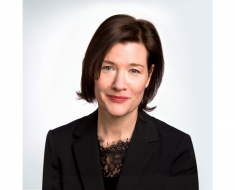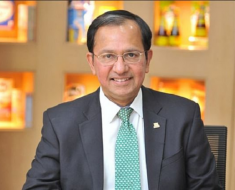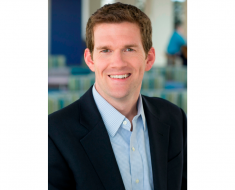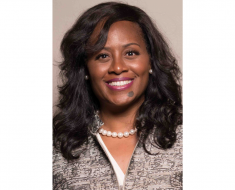Day two of Spectra, the online conference on reputation management, saw Dr Edna Ayme-Yahil, senior director, head of communications, brand and sustainability at SITA, speak about what it means to be a communication leader in 2030.
The ever-evolving job description
Ayme-Yahil stated that a communications leader plays the role of a director, and not an actor, with most of their time spent behind the camera.
“I spend 99% of my work time enabling others to communicate – my CEO, business leaders or my team,” she said. “The role of a communications leader is getting more and more complicated,” she admits, moving on to explain the required skill sets.
“There are media relations, brand reputation, promoting the CEO and the corporate vision, digital communications, executive communications, internal communications, product communications, social media, transformation and M&A, events, and crisis communications. The list goes on with different responsibilities adding to the portfolio. However, you’re always learning new things. That learning mentality is the key to success,” she added.
She also stated that communications leaders should accept that “they may not know it all” and it isn’t possible to have a full understanding about every single sub-aspect of communications. “To build your career, think about getting many of them right – especially the big ones like brand, media relations, internal communications and digital,” she advises.
Competencies one needs to lead
Ayme-Yahil’s believes that the skills one needs in communications come under four big categories – technical ability, messaging, collaboration and strategic thinking.
Briefly explaining each of these categories, she said, “Technical ability has three aspects within it – digital, project management and measurement. Digital is constantly changing, and while one doesn’t need to be HubSpot or Google Ad Words certified, you should spend a significant amount of time getting up to speed about the medium. Project management is the key – one could be a great writer, but that person could need training with regards to project planning, budget management, how to manage teams that do not necessarily report to you, etc.”
Moving to ‘messaging’, she said, “One could be required to write a whitepaper, a tweet or anything in between.” There’s also the understanding of audiences; how to tailor the right message to the audience, for instance. She said that visual messaging is sometimes forgotten and communications leaders should be able to have a gut feeling of what works and what doesn’t.
On collaboration, she said, “You could be dealing with conflict, dealing with convincing people, negotiating. That’s where persuasion comes in. Often you’ll be coaching someone senior to you, if not your CEO. It takes time to learn and understand. Different senior leaders require different approaches.”
The final part of the jigsaw is strategic thinking, according to Ayme-Yahil. “One needs to think, distil information, synthesise, forecast, estimate what the probability of something happening or what the risk of something is – these are essentials and are the difference between good and great communications leaders. Also, if you can’t speak in a language that your company’s decision-makers understand then you won’t be able to get anything done. Understanding how business and finance work is key to being successful in this job.”
She ended her talk by listing out a few things for those who want a successful career in communications.
“Who knows what the future is? But I do hope a vaccine will bring an end to the pandemic because it’s been difficult for all of us. I think one of the things we know about the future is that we don’t know what the future will be,” she said.
“You can work on the various competencies I have mentioned and try to continually grow. Think about your career strategically. Ask yourself questions periodically: Do I stay in one country? Do I work internationally?”
On the other hand, serendipity, karma or chance are beautiful things, she said, “You never know what might come in your way, so you shouldn’t reject opportunities that come up,” said Ayme-Yahil, in closing.








